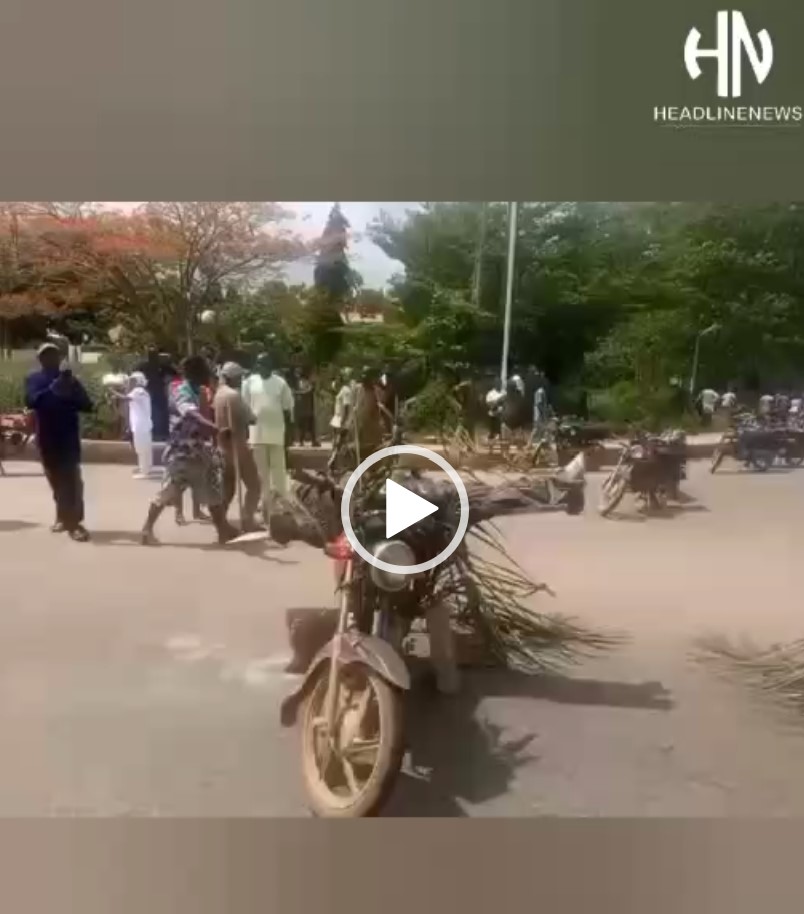What should have been a calm Monday morning in Akure, the Ondo State capital, turned into chaos and terror, as yet another wave of violent attacks—allegedly carried out by armed Fulani militants—shook the city and left residents in fear for their lives. The escalating spate of violence in what was once a relatively peaceful state has stirred renewed outrage across the Southwest region and the country at large.
)
Eyewitness accounts and videos circulating on social media paint a grim picture: gun-wielding assailants stormed parts of the city, firing shots indiscriminately and causing mass panic among citizens. The attackers, believed to be part of a larger network of organized terrorist cells operating under the guise of herdsmen, have intensified their operations in recent months with increasing boldness and brutality.


“This is not a clash. This is war,” said a visibly shaken resident who witnessed the attack. “We are no longer talking about cattle or farmland disputes. This is organized terror in a Southern state capital.”
A Coordinated Threat, Not Isolated Incidents
Security analysts and community leaders are alarmed by the scale and coordination of recent attacks. From Owo to Akoko, from Ekiti to Kogi borders, there has been an inexplicable rise in kidnappings, mass killings, and assaults on traditional rulers and farmers—many of them linked to foreign-backed terror networks allegedly exploiting porous borders and weak internal security.
The attack on Akure marks a dangerous escalation. Akure is not a remote village. It is a capital city. That such a brazen act could occur in broad daylight signals a severe collapse of deterrence and intelligence gathering within Nigeria’s security architecture.
Possible Political Undertones?
Observers and political commentators are beginning to question whether these recent escalations—especially concentrated in Yoruba-speaking Southwest Nigeria—are mere coincidences or part of a broader political vendetta. Some suspect the resurgence of violent incursions may be driven by the deepening fault lines within Nigeria’s fragile power structure.


There is growing speculation that these attacks may be deliberate acts of reprisal by aggrieved extremist factions within the Fulani-dominated terror networks who feel sidelined by the current political transition under President Bola Ahmed Tinubu’s administration—a Yoruba son. The escalation of violence could be a strategy to destabilize Yoruba land, weaken public confidence in the Tinubu presidency, and possibly provoke ethnic reprisals.
“It’s hard to ignore the symbolism,” said a political analyst who spoke to HeadlineNews.News on condition of anonymity. “This is the same region that delivered the presidency to the South. Now it’s being hit hardest. There may be a vendetta playing out beneath the surface.”
A Plea for Self-Defense and Urgent State Action
Frustrated residents and traditional rulers have repeatedly called for constitutional reforms to allow state policing and legitimate self-defense. They argue that communities must now be empowered to protect themselves, especially as federal forces seem overwhelmed, outstretched, or in some cases, indifferent.
The Yoruba Assembly, security think tanks, and civil society groups are calling for an urgent review of Nigeria’s security protocols and a regional counter-terrorism strategy to prevent the South West from descending into anarchy.
“Enough is enough. If the state cannot defend us, we will defend ourselves,” said a local leader in Akure. “Let the federal government know—we won’t sit back and watch our people slaughtered.”

The Danger of Silence and the Need for Accountability
What many see as most disturbing is the silence of federal authorities and Northern political elites who are quick to condemn retaliatory attacks in the South but remain muted in the face of the murder of Southern farmers, women, and children by Fulani terrorists. This perceived double standard only deepens mistrust and fractures the already delicate unity of the country.
The Ondo State Government is yet to release a formal statement at the time of reporting, though local security personnel have been deployed to restore calm.
Editorial Conclusion: A Country at a Crossroads
The events in Akure are not isolated. They are part of a chilling trend that threatens Nigeria’s territorial integrity and societal cohesion. If these attacks continue unchecked, they may ignite a broader ethnic crisis with consequences far beyond the Southwest.
The federal government must act. The time for pretense is over. The Yoruba people, like every other Nigerian, have a right to live in peace and dignity on their ancestral land. If that right is continually violated, history has shown what can follow: resistance, revolution, or worse.
Headlinenews.news Editorial Board.




